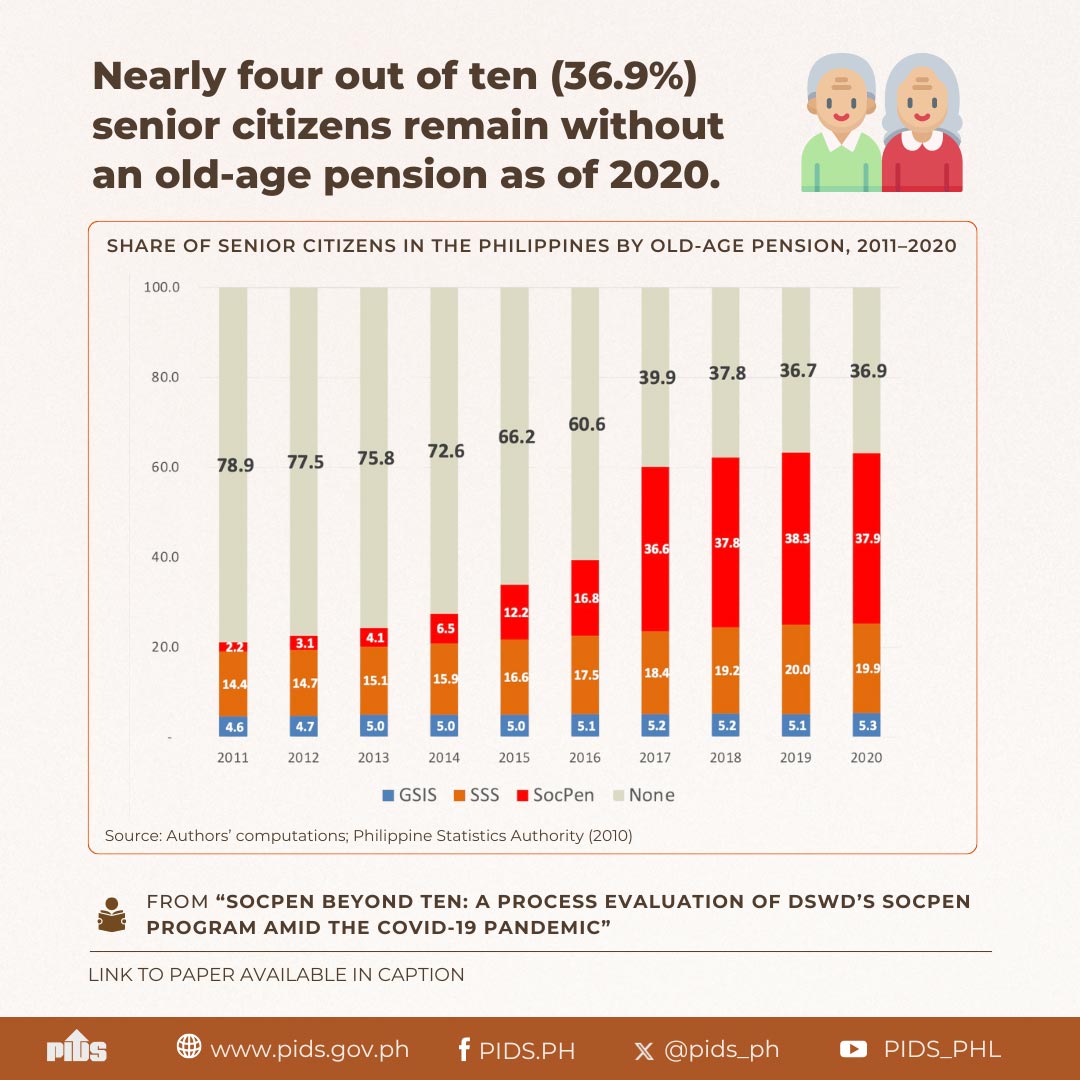State-owned think tank Philippine Institute for Development Studies (PIDS) will be conducting impact-evaluation studies on an employment project and two other major government projects.
The National Economic and Development Authority said the evaluation studies will be funded by a AUS$2.8 million, or roughly P9.5 million, worth of assistance from the Australian government.
The evaluation will be done through the International Initiative for Impact Evaluation, which aims to evaluate three major development programs, namely, the Special Program for the Employment of Students (SPES), the Sustainable Livelihood Program and the Payapa at Masaganang Pamayanan (Pamana-Peace and Development Program).
"In developing countries such as the Philippines, impact evaluation is vital in identifying what programs or projects work and what do not,” Socioeconomic Planning Secretary Arsenio M. Balisacan said in a news statement.
"It helps policy-makers ensure that public and donor funds are used prudently, and that limited resources are directed toward more efficient development interventions,” he added.
The Department of Labor and Employment project SPES is designed to link low-income youth aged 15 to 25 to formal work opportunities during school’s semestral or summer breaks.
The impact-evaluation study, thus, aims to determine how SPES affects the students’ school participation, as well as their income, work hours and the duration of job search.
The study on the Sustainable Livelihood Program of the Department of Social Welfare and Development, meanwhile, will determine the extent that livelihood and employment opportunities provided to recipients of conditional cash transfers helped beneficiary families. The impact on conflict-affected areas of the Pamana Peace and Development Program, handled by the Office of the Presidential Advisor on the Peace Process, will, likewise, be evaluated.
Apart from these projects, Balisacan said the Supreme Court has also expressed its interest to subject its project, titled Access to Justice by the Poor, to impact evaluation.
"To me, that is a very interesting development; for them to be willing to be subjected to the discipline of impact evaluation is very encouraging,” Balisacan added.
"As we approach the end of the current administration, we are confident that we have put in place an enabling environment where the appreciation, conduct of evaluation and subsequent use of evaluation findings in policy and investment decisions are fully embedded in government programs, projects and processes,” he added.
In 2014 a P300-million budget was allotted to the PIDS to conduct evaluation studies on key government programs and projects.
The budget is also intended for various government agencies and selected state universities and colleges for capacity-building programs on impact evaluation.
In July this year, the government finalized the National Evaluation Policy Framework (NEPF) through a Joint Memorandum Circular (JMC) between the Neda and the Department of Budget and Management. This aims to further improve resource allocation processes for various government projects and programs.
PIDS sets evaluation of government employment, cash dole-out projects












